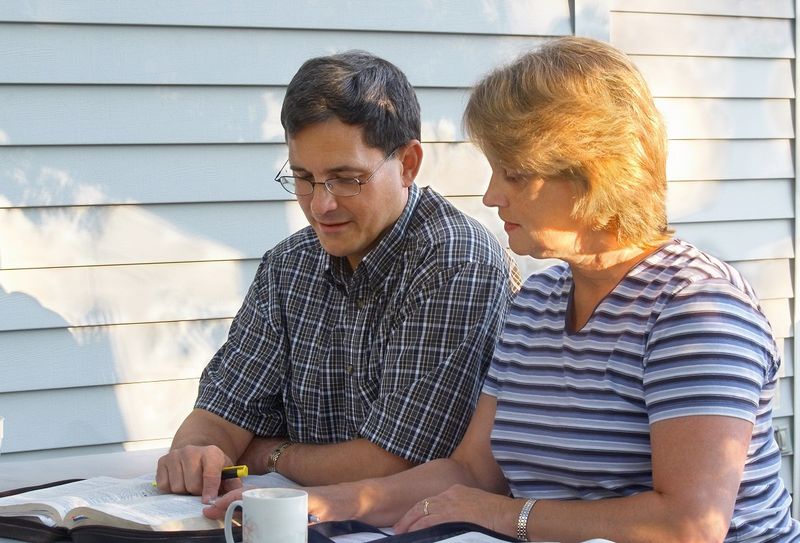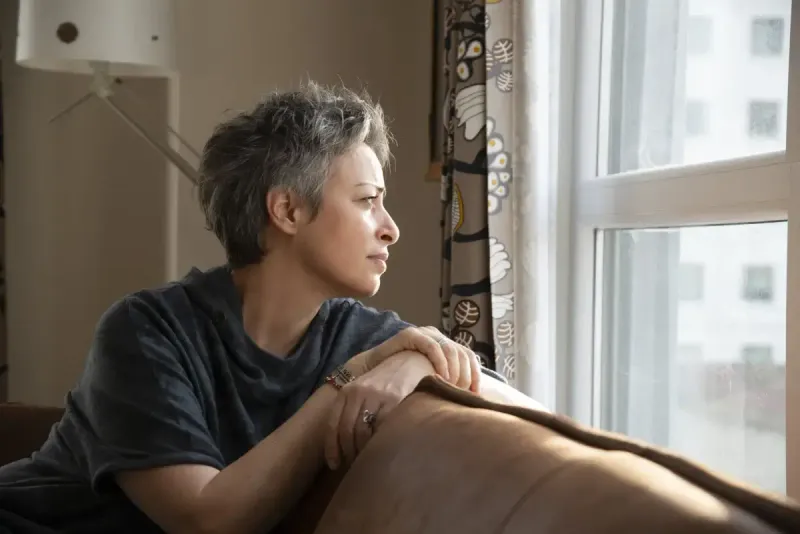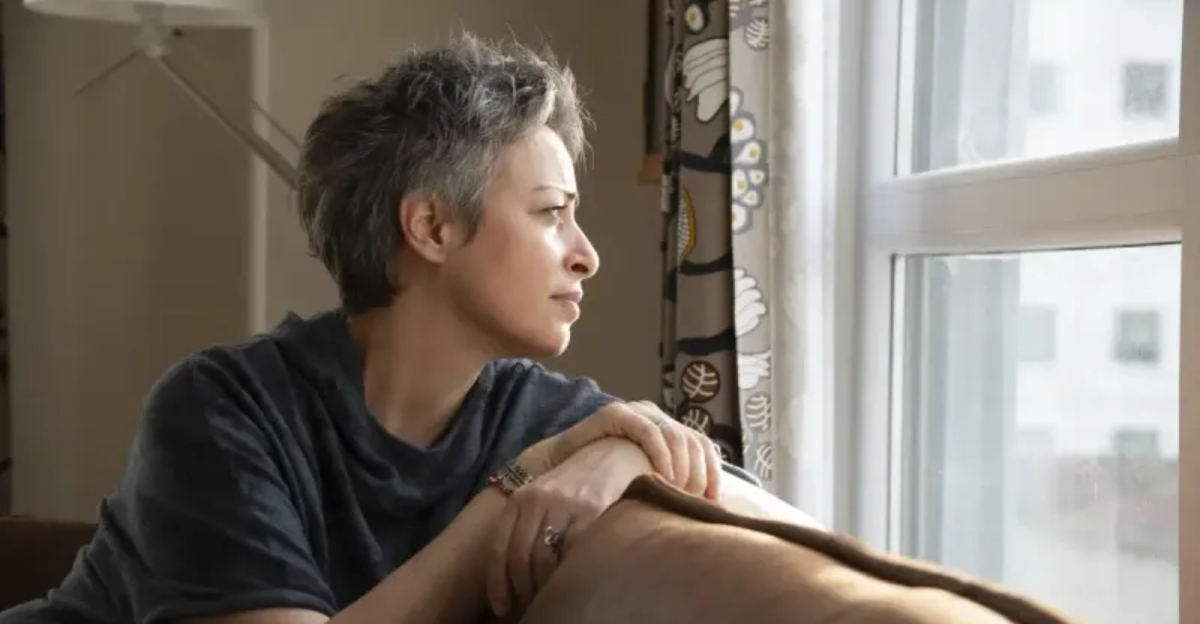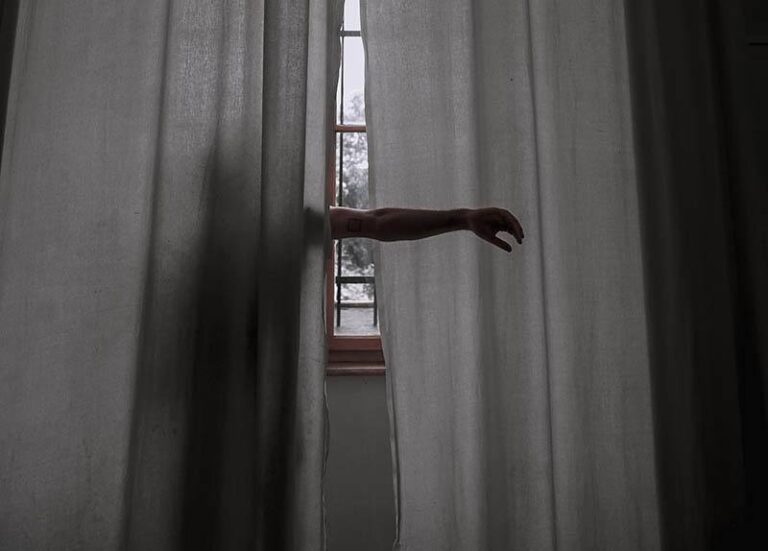“We Stayed Together After the Affair” — 15 Lessons From Real Couples Over 50
When someone cheats, the whole story shifts. And when you’re over 50, with decades of life behind you—shared homes, kids, heartbreaks, dreams—it hits differently.
Some couples call it quits. Others… choose to stay. Not because it’s easy. Not because it’s romantic. But because they believe love—real love—sometimes lives on the other side of devastation.
Here are 15 honest, hard-earned lessons from real couples over 50 who stayed together after the affair—and what they learned about forgiveness, growth, and the kind of love that doesn’t quit.
1. “The marriage we had before is gone. What we have now is different—and strangely, better.”

We had to bury what we thought we were and start over. Same people, completely new rules. It wasn’t about erasing the past but reinventing our future together. We had late-night talks that stretched into the early morning, laughter mixed with tears, and new dreams born out of old pain.
Strangely, we found ourselves more connected, more honest than ever. It was as if we had dusted off layers of familiarity to discover something surprisingly fresh underneath. This new relationship wasn’t perfect, but it was real, raw, and ours.
We stopped being who we thought we should be for each other and started embracing who we truly are. It’s like finding a new groove in a familiar song, one that fits just right. That realization was our turning point, making us stronger and more resilient together.
2. “I thought I’d never be able to look at him without seeing it. But over time, I started seeing us again.”

The memory doesn’t vanish. But it loses its grip when new, better memories take its place. Initially, every glance was a reminder, every silence a scream of what had happened. I wondered if I’d ever look at him and not see betrayal.
But then, slowly, the images of pain faded. We started making new memories—weekend getaways, quiet dinners, and shared sunsets. Each new moment added another layer of color over the monochrome of hurt.
Eventually, I looked at him and saw us. The couple who laughed through bad movies, argued over silly things, and held hands in quiet moments. The past didn’t disappear, but it became a part of who we are, not all that we are. I began to see him, and us, clearly again, and that clarity was like coming home after a long, exhausting journey.
3. “He didn’t just say sorry—he changed. That mattered more than any apology.”

Consistency became the proof I needed. Every day, not just when I was crying. Apologies were important, but they were just words without the backing of actions. His real apology came through in the little things.
He took on responsibilities he’d ignored, listened more than he spoke, and made choices with us in mind. It was in the small, everyday gestures that his sincerity shone—making the coffee just the way I like it, showing up for the mundane yet meaningful moments.
Over time, these actions spoke louder than his initial apology ever could. They showed a commitment to change, a new rhythm in our daily lives that played a melody of care and consideration. This change was the foundation we built upon, stronger now, reinforced by genuine intent and love.
4. “I asked hard questions—and he answered. Even when it hurt.”

Transparency helped me breathe again. I didn’t want comfort. I wanted truth. The kind of truth that doesn’t hide behind excuses or sugar-coated lies. So, I asked him the hard questions, the ones that made him squirm and made me nervous.
His willingness to answer, to own up to his actions without flinching, was the beginning of trust rebuilding. It was painful, hearing and speaking the raw truth, but it was also liberating. We cleared out the shadows that lingered between us.
With each honest answer, a weight lifted. We were learning to face the uncomfortable together, and it made us stronger, more resilient. That openness became our new way of life, a testament to our commitment to each other and our future.
5. “I didn’t forgive quickly. And I stopped pretending I had to.”

Forgiveness came in layers. Some days I gave it. Some days I couldn’t. That was okay. I realized that forgiveness isn’t a one-time event but a journey, one I had to travel at my own pace.
There were days when anger resurfaced, and others when peace washed over me like a gentle wave. I stopped forcing myself to feel okay just to make things seem normal.
By acknowledging my own pace, I allowed myself the grace to heal genuinely. It was a process of releasing, not forgetting, understanding that forgiveness is more about freeing myself than anything else. It was liberating, giving me the space to be honest about my emotions and showing him that my forgiveness was real and enduring.
6. “We had to unlearn years of silence and politeness.”

We started saying the real stuff—needs, fears, resentment. Things we should’ve said years ago. Our marriage had been built on a foundation of politeness, avoiding conflict for the sake of peace.
But after the affair, we realized that silence had been our enemy, not our friend. So, we began speaking up, even when it was uncomfortable.
It was like learning a new language, one that required courage and honesty. We discovered that expressing our true selves, even the messy parts, brought us closer. The old ways of nodding and smiling through disagreements faded. Instead, we embraced a new openness, a willingness to tackle issues head-on. This unlearning opened doors to deeper understanding and love.
7. “I had to stop asking ‘Why did you do this to me?’ and start asking, ‘What do we do now?’”

Blame kept me stuck. Forward motion came from honest action. Initially, my mind was filled with ‘why’, seeking reasons that seemed elusive and unsatisfying.
But dwelling on the past didn’t change it. I realized the power lay in our next steps, in what we chose to do with the aftermath. Shifting focus from blame to building was liberating.
Together, we began to forge a path forward, filled with intentional choices and shared dreams. It was about creating a new narrative, one where we both played active roles in shaping our future. Asking ‘what now’ opened up possibilities, new beginnings, and the chance to redefine us on our terms.
8. “Therapy saved us. Period.”

We couldn’t have done it alone. We didn’t even know how to have the conversations we needed. Therapy became our safe space, a neutral ground where we could express our thoughts and feelings without fear of judgment.
Our therapist guided us through the tangled web of emotions, helping us find clarity and direction. It was tough at first, exposing vulnerabilities and facing uncomfortable truths.
But, as we continued, the healing began. We learned new ways to communicate, to listen, and to truly understand each other. Therapy became the bridge that connected our broken parts, transforming pain into growth and resentment into renewed love. It was the lifeline we needed to navigate the storm together.
9. “We gave each other permission to grieve.”

The betrayal was a death. Of trust, of the old story, of who we thought we were. We mourned it together. Grief was an unexpected companion in our journey, but acknowledging it was necessary.
We allowed ourselves to feel the loss, to cry and remember what was gone. There was no rush to move past it, no pressure to act like everything was okay. Instead, we sat with it, held each other, and let the tears flow.
This shared grieving process opened the door to healing. It was a raw and real acknowledgment of our pain but also a testament to our commitment to rebuilding together. In grief, we found a new strength, a deeper connection that carried us forward.
10. “I stopped pretending I was okay just to keep the peace.”

He had to see my anger. My sadness. My numb days. And he had to stay present through all of it. Pretending everything was fine had been my shield, but it was also my prison.
Letting it down meant showing him the raw and fractured parts of me, the truth of my emotions. It wasn’t easy, and it certainly wasn’t pretty, but it was authentic.
Facing those feelings head-on was crucial for healing. He needed to know the reality, not the facade. And, to his credit, he stayed, listened, and held space for my truth. This honesty became the foundation for rebuilding trust and understanding, paving the way for genuine connection.
11. “There was no big ‘fix it’ moment. Just small, steady repair.”

Love became quieter—but deeper. Less about romance, more about respect and rebuilding. We realized that there wasn’t going to be a grand, cinematic turning point.
Instead, healing came through the everyday moments, the small, steady acts of love that gradually mended the fractures. It was in the shared chores, the silent comfort of reading side by side, the gentle reassurance of a touch.
These little moments stitched us back together, slowly but surely. Our love transformed, becoming more about presence than passion, more about quiet understanding than loud declarations. This quiet repair became the thread that wove us into something stronger, more enduring than before.
12. “We learned how to love each other in a new language.”

We stopped saying ‘I love you’ and started showing it—in ways that actually landed. It was like learning to communicate all over again, finding the expressions and gestures that truly conveyed our feelings.
We discovered that love wasn’t just in the big, sweeping gestures but in the little, meaningful actions that spoke volumes. It was in the way we listened, the way we noticed, and the way we adapted to each other’s needs.
This new language of love was personal and profound, built on understanding and empathy. It wasn’t about what we said but what we did, creating a symphony of actions that resonated deeply within both of us.
13. “I had to fall back in love with myself first.”

I lost so much of me trying to hold everything together. Reclaiming myself was step one. The affair had shattered my self-esteem, leaving me questioning my worth and identity.
I realized that before I could rebuild our relationship, I had to rebuild my own sense of self. So, I focused on self-care, nurturing my own needs and desires, finding joy in small, personal victories.
This journey back to myself was empowering. As I began to love who I was again, it naturally spilled over into our relationship. It was a reminder that self-love is the foundation of any healthy relationship, and it was the key to rediscovering the love we once shared.
14. “We stopped taking each other for granted—and started acting like we could lose each other.”

That awareness made everything feel more fragile, more precious. We grew gentler. After the affair, we were acutely aware of how easily things could unravel.
This realization made us cherish the everyday moments, treating each one as a gift rather than a given. We began to notice the little things—the way his eyes crinkle when he smiles, the warmth of her hand in mine.
These small acts of noticing and appreciating became our new norm. We danced in the living room, laughed at silly jokes, and held each other a little longer at night. This renewed attention transformed our relationship, infusing it with a tenderness and gratitude we hadn’t known before.
15. “Staying wasn’t weakness. It was the bravest, hardest choice we ever made.”

Everyone assumed I’d leave. Sometimes, I thought I should. But choosing to stay—and do the work—that’s where real strength lived. It wasn’t the easy path, but it was the one we felt was worth taking.
We faced doubts, judgments, and our own insecurities, but through it all, we chose each other. Staying was about courage, about fighting for love even when it seemed impossible.
This journey was not for the faint-hearted. It tested us, shaped us, and ultimately, strengthened us. We emerged on the other side, not whole, but healing, not perfect, but perfectly committed to this life we’re rebuilding together.







